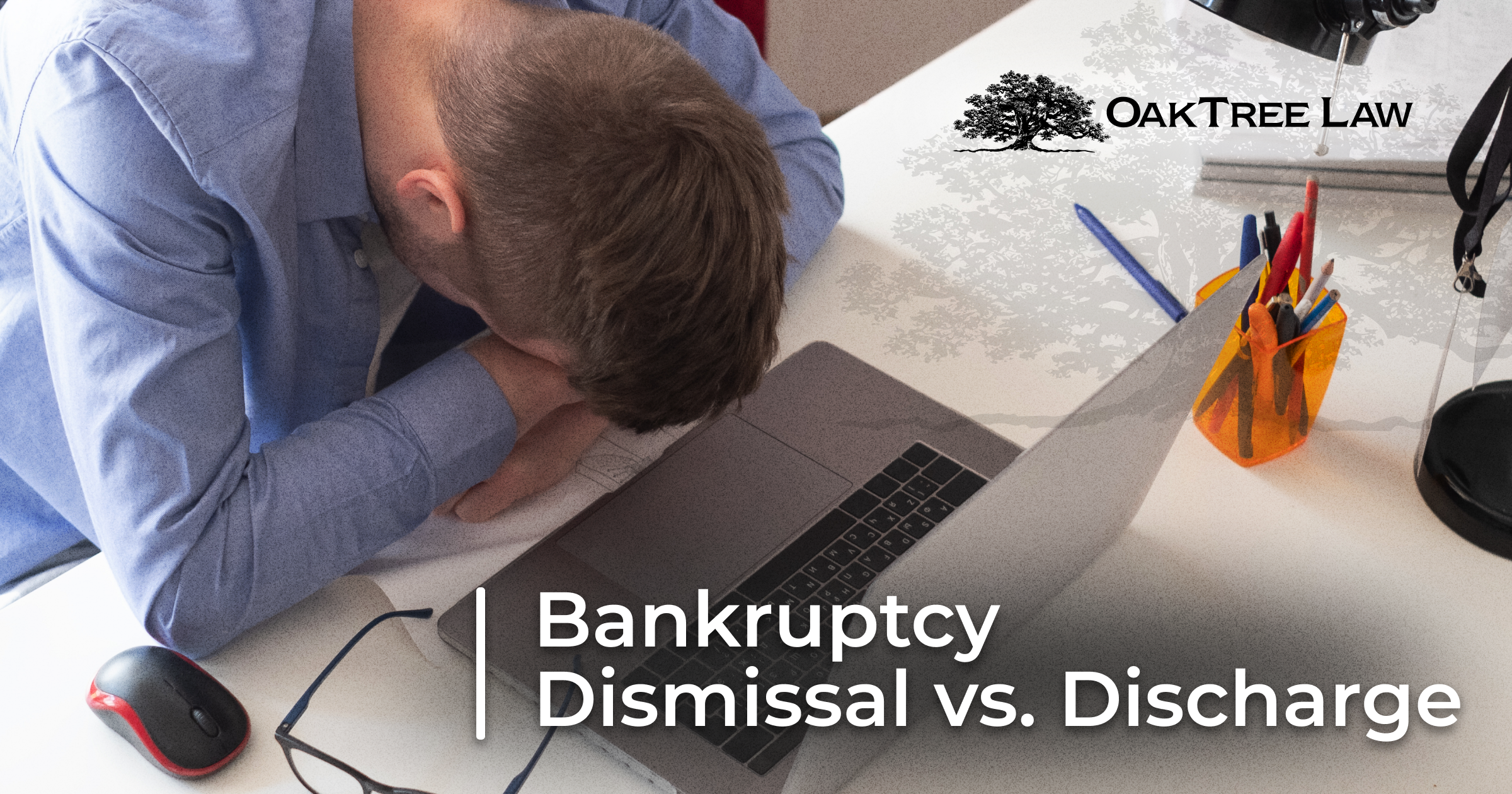
When a bankruptcy case is filed with the court, it may be dismissed or discharged. The terms are often confused, especially among first-time filers. Here, we will explain the differences between bankruptcy dismissal vs. discharge and how the court’s decision ultimately affects your case.
What Is a Bankruptcy Dismissal?
When you receive a dismissal, it means your bankruptcy case was closed without an elimination or reorganization of debt. It’s usually a loss for the filer. A court may dismiss a bankruptcy case if you:
- Fill out a form improperly.
- Don’t submit all the required paperwork.
- Fail to show up at a scheduled court hearing.
- Are not eligible for the specific type of bankruptcy.
- File too soon after a previous bankruptcy.
If you don’t meet the requirements of the Bankruptcy Code, it’s known as a deficiency. The court will provide a notice that it intends to dismiss your case; oftentimes you have time to fix a mistake before the case is finally dismissed. After a case is dismissed, you can file a Motion to Reinstate. This written request, along with an explanation that the deficiency has been corrected, can be denied or the judge presiding over your case can cancel the dismissal order.
However, a dismissal isn’t always a total loss. An example is when Chapter 13 bankruptcy is filed to buy time to complete the sale of a home in danger of foreclosure. The automatic stay is no longer needed once the sale is complete, so the bankruptcy case is dismissed. A Chapter 7 case can’t usually be voluntarily dismissed, but can be converted to another chapter (the bankruptcy process can’t be reversed).
What Is a Bankruptcy Discharge?
This is the primary goal of a bankruptcy filing. A discharge means that you are no longer legally obligated to pay unsecured debts. Since it’s under court order, creditors and lenders can no longer pursue debts from you or file a lawsuit. This can give you a fresh financial start and a second chance at re-establishing financial security and credit.
However, a bankruptcy discharge does have its limits. It does not remove negative credit history, such as late payments or account delinquencies. Not all unsecured debts can be discharged, such as taxes, child support, or alimony. And if you have liens on things you own, they’re not impacted by a bankruptcy filing. The liens, however, won’t attach to assets acquired after the debt in question is discharged by bankruptcy, although the creditor can levy or foreclose the asset on a surviving lien.
How a discharge works depends on the type of bankruptcy filing. Here are a couple of examples:
- Chapter 7: A discharge occurs after you provide the court with all required information, attend the creditor’s meeting, and complete any other requirements.
- Chapter 13: Usually establishes a repayment plan, over 3 to 5 years, but if you can prove hardship and have paid creditors as much as what they would have received under Chapter 7, a Chapter 13 discharge is possible.
Can a Case Be Closed without a Discharge or Dismissal?
Having a bankruptcy case closed without a discharge is considered by most to be a failure, given the effort it takes to file. But if a bankruptcy case was filed in an untimely manner, this can be an intentional strategy. The goal is to close the case without giving up the right to a discharge.
An example is when a Chapter 13 case follows too closely to a Chapter 7 filing; the case is instead closed when the repayment plan is completed. There’s also another circumstance in which a case can be closed without a discharge. This is when the debtor fails to complete a debtor education course, which is required by the court.
Contact OakTree Law’s Los Angeles Bankruptcy Attorney
Bankruptcy dismissal vs. discharge is little understood by many first-time filers, but knowing the differences has a major impact on your case. At OakTree Law, we can help determine which type of bankruptcy is right for you and ensure all the requirements are in place to complete a discharge of debt. Our team can help with your Chapter 7, Chapter 13, Chapter 11, or Chapter 20 bankruptcy case and manage every aspect of filing, processing, and negotiating your bankruptcy. To get started, request your free evaluation or call 888-348-2609.